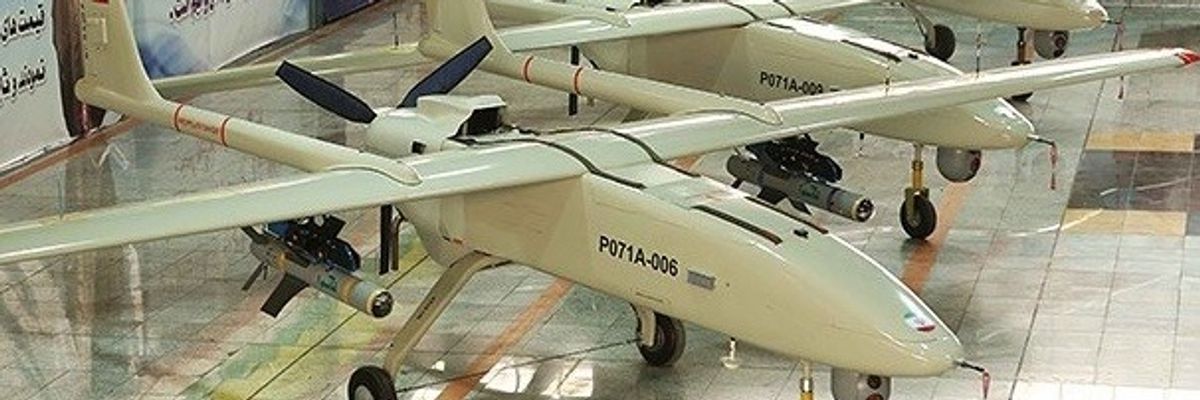U.S. Central Command said today that at 2 p.m. local time the U.S. military in Erbil Governate (Northern Iraq) shot down an Iranian drone engaged in an "unprovoked attack" that "appeared as a threat to CENTCOM forces in the area."
What makes this quite different from previous drone shoot-downs is that this was reportedly an Iranian Revolutionary Guard Corps (IRGC) drone. In previous exchanges in Northern Iraq and just over the border in Syria, "Iran-backed militias" have been accused of the provocations. This one goes right to the heart of the regime, which has always kept a distance from the militias on the ground and has not taken responsibility for previous attacks.
We know, however, from recent headlines that Iran has been targeting Kurdish groups it claims are responsible for fomenting the massive protests across Iran for the last 11 days. As of this afternoon, at least nine people have been killed and 24 wounded in the Erbil region, according to Al Jazeera, with that death toll expected to rise. The Iranians have been engaged in a "wave" of shelling and drone strikes, with Washington condemning them as an “assault on the sovereignty of Iraq and its people."
The CENTCOM press release did not speculate, but it seems fairly certain that today's shoot-down was related to that wave of attacks and the U.S. choosing to intervene on Iraq's behalf. That our troops are not there to defend Kurds from Iranians but under a completely different AUMF does not matter. We're there and, at this point, so integrated into the Iraqi military and security landscape that any threat to Iraq could be a "threat to CENTCOM forces." That goes for the U.S. forces still positioned in Syria.
So what happens when the Turks decide to start really pummeling the Kurdish People's Protection Units (YPG), who are U.S. allies, as they have promised? A NATO-vs.-NATO showdown?
Perhaps there is support for U.S. forces remaining in the region to protect the sovereignty of Iraq and its people — lord knows they have earned it — but shouldn't that be up to the American people via congressional approval and oversight? That isn't the case, however. The U.S. military has remained there, in harms way, under every successive administration since the 2003 invasion, without a new AUMF. Now they are embroiled in regional disputes that bring the U.S. closer to a direct confrontation with Tehran. Is this what we want?
Congress, let's talk.
















